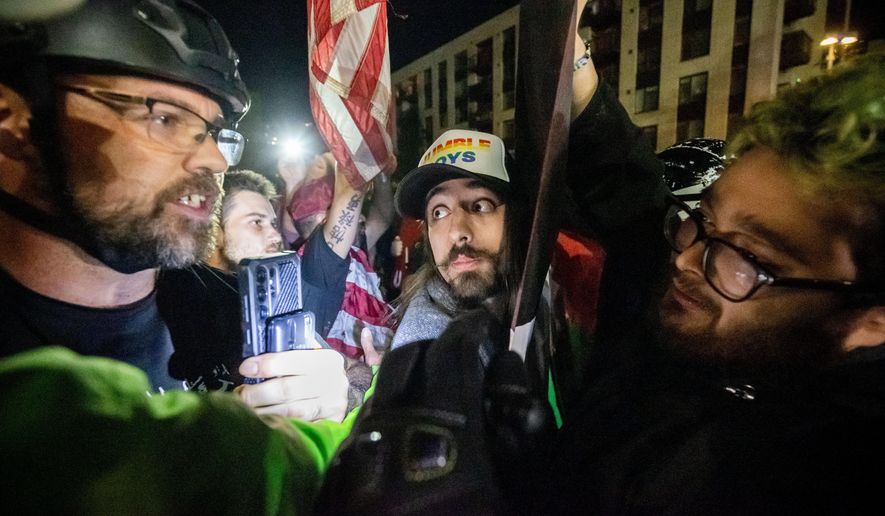A federal appeals court on Tuesday erased a ruling that would have allowed President Trump to deploy National Guard troops to Portland, Oregon, saying the judges have decided to re-decide the case.
A three-judge panel of the 9th U.S. Circuit Court of Appeals had ruled earlier this month that Mr. Trump was likely on decent legal ground when he ordered the troops.
But the full court has now vacated that ruling and said it will be re-heard by a larger panel.
That marks a setback for Mr. Trump, snatching a victory out of his hands, and a win for Oregon and Portland, which have been battling feverishly to block the troops.
Curiously, the same court, in other action Tuesday, said it would not immediately rehear a ruling that allowed Mr. Trump to deploy Guard troops to Los Angeles over the summer.
Not enough of the court’s judges supported the rehearing.
In opinions filed with that decision, some of the court’s judges signaled they were eager to rein in a president who they felt was trodding on critical boundaries.
“I continue to think that the president’s disregard for this country’s deep-seated commitment to the principle that armed forces must not be used as civil law enforcers except where there is no alternative should have been headed off now, not later,” wrote Judge Marsha S. Berzon, a Clinton appointee.
Judge Ronald M. Gould, another Clinton appointee, was even more stern.
“Using military force to quell predominantly peaceful public protests as a first rather than a last resort may cause dissatisfaction of the citizenry and provoke civil unrest,” he wrote.
“To have an armed military faced off against civilian protesters, whatever the motivation of the president, threatens to produce another tragedy, such as that occurring at Kent State University in 1970,” Judge Gould added.
Four students were killed and nine wounded when Ohio National Guard troops, called up by the governor, opened fire on an unruly anti-war protest at the Ohio school.
Mr. Trump turned to the military for assistance in Los Angeles after riots broke out in protest of a surge of immigration enforcement in June.
Some 4,000 National Guard troops and 700 active duty Marines were deployed at one time, though their numbers have since dwindled to several hundred.
They provided protection for federal buildings and force protection as immigration agents and officers ventured into communities to arrest deportation targets.
Los Angeles and California sued, and a lower court initially sided with the Democratic-led jurisdictions. But the panel of the 9th Circuit put that ruling on hold, saying the law gave the president great deference.
That law allows a president to federalize and deploy troops when there is rebellion or when the “regular forces” are insufficient to carry out federal functions.
After Los Angeles, Mr. Trump has tried to deploy troops to Portland and Chicago, saying anti-ICE protests in both of those cities have hindered immigration enforcement.
District judges in both cities issued restraining orders blocking the deployment.
In the Chicago case, an appeals court sided with the district judge and Mr. Trump has now asked the Supreme Court to get involved.
A ruling on that could come any day.
In Portland, the three-judge panel of the 9th Circuit ruled earlier this month in favor of Mr. Trump, icing one of the district judge’s restraining orders. Another one remained in place, though the Trump administration had asked that it be erased.
The full 9th Circuit’s action Tuesday means the first restraining order snaps back into place and the second one remains in effect.
• Stephen Dinan can be reached at sdinan@washingtontimes.com.




Please read our comment policy before commenting.